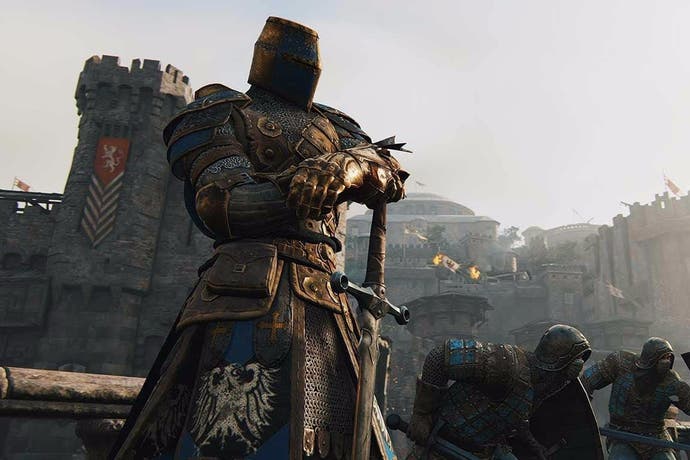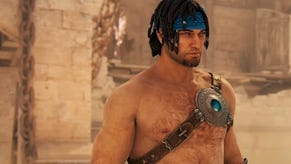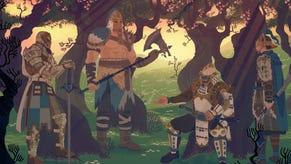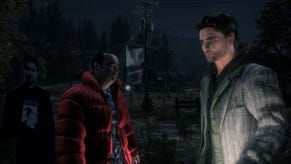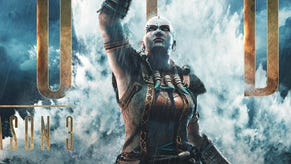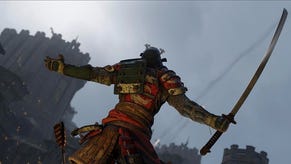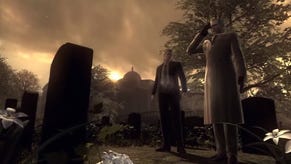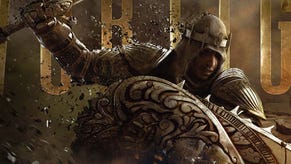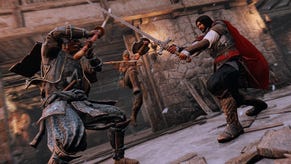For Honor: Ubisoft answers the big questions
Hero balance! Disconnections! Honourable play! More!
For Honor has been out a few weeks, and most who get on with it agree the core combat is brilliant. I certainly think so.
But For Honor is not without its problems. It's a game sometimes plagued by disconnections, and matchmaking is nowhere near where it should be. Then there are the ongoing grumbles about hero balance, the over-reliance on defensive play, and the fact there's no meaningful rage quit punishment right now.
One thing Ubisoft is repeatedly bashed over the head is its decision not to go with dedicated servers for the game, a game, remember, that's always online and competitive multiplayer focused. This, most players believe, was the wrong decision. When a match breaks down because of repeated disconnects and reconnections, it's easy to see why.
It was with all this in mind that we spoke with For Honor game director Roman Campos Oriola for a sweeping interview that takes in all the above - and more.
For Honor has been out a few weeks now. Has player behaviour surprised you in any way? Or has it reflected what you saw in the open beta?

Roman Campos Oriola: The issue with the live tests we did was it was always short, five to seven days. It was enough to get a sense, but it was never enough to get to the endgame, or closer to the actual endgame, as we are today. We always knew defence was strong. We never thought it was this strong. That's one of the things that surprised us. It's not a game-breaker, but it's a bit too much. That's the biggest surprise I had after three weeks following launch.
You definitely feel that at a high level of play the best course of action seems to be to wait for your opponent to do something.
Roman Campos Oriola: The intention was to make a fighting game with a strong defence. Usually in martial arts, the first thing you learn is defending. We wanted to have that at the core of the game. Before attacking, you need to defend. You are as good as your defence is good. That was something we wanted to have built in, but not necessarily at the level where it is today. So definitely we're looking to rebalance that, but defence needs to stay strong.
What can you do about it?
Roman Campos Oriola: Today first we have some bugs that make it even more true, like the fact you can safely parry. You can trigger a parry and if you miss it you have a really short timeframe to convert it into a feint and still block. That is a bug we're currently trying to address. That's making it a little bit more defensive.
But today the things we're looking at is, we don't have enough moments when you make a mistake and the enemy through offence can open you or swarm you or harass you. Today, the best openers, most of the time, except for some specific matchups or characters, come from a defensive opportunity.
So we're looking at the out of stamina state to see how we can make it so that you're much less safe in that state than you are today. Our goal with the stamina has always been to have it as an offensive resource. You use it to fuel your offence and at some point if you overuse it, you can't attack any more. But also we wanted you to be in danger when you're in that state. And currently that's not the case because you can parry, dodge and do all your blocking. As soon as you're out of stamina you can just turtle your way out and then go back to a normal state.
We're also looking closely at frame advantages that we're giving on block, on parry and on dodging. And we're trying to see if we can rebalance it a little bit with the offence. Like, are we having too big recoveries on a specific move that make this move too unsafe? We're trying to rebalance that, but that is more character specific.
For example, with the latest patch, what we did with the Conqueror and the Berserker, they were unsafe on block on their light attack. That was clearly not intended, and that was clearly making players even less willing to attack. That's the kind of stuff we're looking at. It's not a big system change we're going to do. It's a lot of small tweaks. For example, maybe just like your attacks are slower when you are out of stamina, your dodge is also slower, so you can't dodge a chain of light attacks when you're out of stamina. It's small, precise elements that will slowly shift the tide.
We want to be careful with that, because we don't want to break the game. So it's going to be every now and then a small change, and we'll see how it will eventually impact the meta-game until we are correct.
How often will you update the game? Are you planning lots of little patches frequently, or will you wait and release fewer, larger patches?
Roman Campos Oriola: The main thing we don't want to do is what we did with the Valkyrie, which is we overreacted and didn't take enough time to crunch the data. In the technical test we did last year, the Valkyrie was too powerful, like in the range of more than 60 per cent of win in a duel at high skill. And we overreacted. We didn't take enough time with that.
So clearly, we will take a little bit more time now and actually wait for weeks and weeks to be sure we have enough matches and enough data to do the intended changes, and not change something after a week or two, and actually we didn't need to change it because we didn't know enough about the game.
So in terms of frequency, I can't really tell you. What I can tell you is we're going to continue to update it, and there is a shitload of stuff we want to fix and balance. We want to buff up the Lawbringer and the Raider a bit. Yes, definitely we want to buff them, but actually they are really good in group fight scenarios. So why aren't we live patching them today? Like, adding a bit more damage, making the light attack combo confirm on the Lawbringer, for example? Because we want to take time on our side to be sure we improve them in a duel, but it doesn't make them better in a group fight scenario. That's tricky, and it requires time and data.
Moving on to the matchmaking, For Honor uses a network model where all players are connected to each other at all times. Now the game is out and millions are playing it - and you'll have seen the negative reaction to the way the online works - do you think 'you know what? Dedicated servers might have been the way to go'.
Roman Campos Oriola: Actually it's more complex than that. There have been multiple issues. First off, in terms of matchmaking, we've had some technical issues on our side. Also we've had some issues with Ubisoft's bigger network, like it happened also with Rainbow Six last weekend. But that is not linked to any peer-to-peer issue. It's more a bigger network structure that sometimes got fucked up when there are too many people running on it, and it was not intended to have that many people. We are working on that overall load. That should improve.
Currently what we're seeing from the data on PC after the last patch is it's getting much better. We'll see when that patch is deployed on console whether it will have the same impact. But so far, we think it's more a problem of structure and infrastructure and the way we connect with them in the game, than something related to peer-to-peer.
When you're in game, the issue we have is around stability. Currently we have issues where when too many people start to disconnect from a game, there is a snowball effect that eventually makes it crash. That's something we're looking at.
To come back to the dedicated server issue, the way our network technology works, even if we were working on dedicated servers, we would have the same issues we have today. Making 4v4 fighting work over a network - it's really special, because your exact position is much more important, and your timing is much more important than in a shooter.
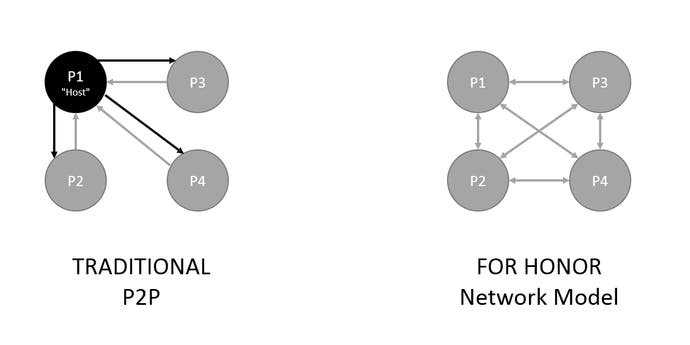
In a shooter, you can have some little lag, or some little delay, and because of the distance and trajectory of the bullet and the almost instant effect of the shot, the requirements in terms of networking and synchronisation are not at the same level for each player.
And so the technology we're using, which is called simulation, everything that happens on your PC is simulated locally. You receive the inputs of all the players. You don't receive their position. And your computer calculates, based on those inputs, exactly where the player is, because it's going to be the same for all the people. It's a deterministic simulation. Even if my computer and your computer are not connected over a network, but we press the input at exactly the same time, exactly the same thing is going to happen on my computer and your computer. All the AI will react in exactly the same way.
And so, when there is a little bit of lag, or when somebody has a frame-rate drop, that adds to the load of calculation of what's happening for each frame. So not only does it have to recalculate everything that is happening for all the people who are sending him information, but also it needs to backup on the things he missed because he was lagging or behind in terms of frame-rate. That's the issue we are facing.
So even with dedicated servers, as soon as you start to lag because you are far from the server, you would start to have the same type of problems. Would dedicated servers help us in some situations? Yes. But in other situations, our current architecture is actually better than dedicated servers. Really, it's a balance of pros and cons. We decided to go with a peer-to-peer version of our system. We still think the pros of that architecture outweigh the cons. But we are monitoring it and making sure it stays more in terms of pros than in terms of cons. We are ready to reevaluate that as soon as it changes.
Could you get into a situation where you reevaluate and switch to dedicated servers? Is For Honor built in such a way where that could happen?
Roman Campos Oriola: For sure it would be a lot of work. It's something that if we wanted it to happen we would have to evaluate it for a long time. It's not something that could be switched on overnight. Today, we're still evaluating how it's working, and we're focused on improving. We have a lot of things we still need to tweak and fix on our architecture that will dramatically improve performance and stability.
One of the problems is there's no real meaningful rage quit punishment in the game. People quit all of the time, and all they miss out on are the rewards they'd get if they'd stick around. But when you think about how much time you'll save by just quitting and then loading up another match, and because you're not losing anything by quitting, then everyone does it all of the time and it ruins matches.
Roman Campos Oriola: There are two aspects to rage quitting. Yes, for sure today we don't have enough penalty on that. The issue is we don't want to punish the player if we are not doing things right on our side. That's why we split the Skirmish and Elimination modes into two different playlists. We were giving Orders to win a specific number of Elimination matches, let's say, and you were coming into a Skirmish game. Then you would quit because you wanted to do an Elimination. If there was a punishment for that, you would be like, fuck you. So we split this. In the same way, in Brawl or Duel, at the end of the match you don't have automatically the opportunity to go back to matchmaking. You only have the opportunity to rematch. That's something eventually we want to improve.
What will you do to fix the rage-quitting issue?
Roman Campos Oriola: Yes, we are looking at putting a penalty on quitting. There are plenty of options we are considering. Maybe there is a penalty on the matchmaking time. Like, if you quit it takes you a little bit more time. This kind of stuff. But at the same time, we need to improve the flow of the game to not have places that actually encourage you to quit.
On flow, if you finish a 4v4 match, even if six players say they're ready to fight again, the game will boot you out, and you'll have to go into matchmaking again, rather than the game thinking, let's find more players to fill this lobby. Fixing that would help with encouraging people to stick around.
Roman Campos Oriola: Yeah, definitely. That's the kind of thing we need to improve in terms of flow before actually putting in a penalty for quitting. When it's going to be available, I can't say for sure. The people doing that are also the ones fighting the fires of network stuff. But we are trying to improve the flow and give you less interest in quitting a match to go back to another one faster.
Now you have some meaningful data, do you feel you have the balance right with the purchasable items? For example, the gear you can get and the stat upgrades they can give you? Obviously gear doesn't apply to every mode, but now players are getting toward the endgame, that the gear and the stats are working as intended, or have you detected sets or certain stats that players are exploring, or are overpowered or not working the right way?
Roman Campos Oriola: Yes. Overall, I like the stat system, and I think the rebalancing it allows you to do on your character is interesting. The issue we have today - that we are working on - is some stats are doing a little bit more than what they should be doing. For example, the stat that lowers the debuffs you have actually allows you to counter a guardbreak in a situation where you should not be able to counter a guardbreak, which is a bug. This will be fixed really soon. To bad for us, we didn't see it.
Also, as more people are getting gear and optimising it, we have some stacking of values that were not intended, especially on the Revenge, that now are becoming too powerful. We always wanted the stats to not replace the skill. With Revenge, we're getting to the point where, actually, when I'm an Orochi and I'm blocking two attacks and I'm getting my Revenge full, maybe the stat is a little bit OP. So yes, definitely there is rebalancing we need to do on some stats. We're currently looking at that,
It's interesting you mention the Revenge mechanic. I can see what you were going for - creating a dramatic comeback technique, especially when you're being ganged up on. But there's a debate about whether Revenge is actually good for the game, whether it feels overpowered even without stat upgrades. I've noticed some players say it would be great to be able to turn it off. What do you think about that?
Roman Campos Oriola: I personally think Revenge is completely mandatory in a group fight scenario. The issue you're facing in group fight scenarios is that you're getting overwhelmed and constantly interrupted. So you need a tool to be able to make the difference.
The goal behind the Revenge is if you're able to survive a little bit, then you will have a tool that will allow you to make a difference - but only for a short period of time. You need to time well your activation, and have a clear strategy for how you're going to use it, because you get that chance and after it's over.
In a group fight scenario it works well, and today when we look at the data about kill/death ratio in group situations, we are in a spot that I think is interesting. When you're against two players, one time out of three you can survive. When you're against three players, it's one out of five on average.
The tough part has always been to find the balance where when you're ganking someone, you need to feel that you're going to kill him, and it's not bullshit because you're actually two on one, or three on one. And when you're that person, you should always see the light at the end of the tunnel, like, yeah, maybe I can take one or two with me. Maybe sometimes - rarely - I can actually win. I think Revenge serves that purpose well.
In Duel it's an interesting debate that we had internally. Personally, I like Revenge in Duel. Why? Because Revenge is a little bit like the Ultra in Street Fighter. It's an event that happens at some point toward the end of the fight. It does not happen every time. But it completely changes the mind games at that moment.
I'm getting close to having Revenge. Maybe I'm going to try to do one or two more defensive action that are maybe a little bit more tricky to get it. And then when I have it, that completely changes your interaction with me. You know I can throw you to the ground. If you guardbreak me I will be able to use it to escape it. There's that level of, okay, you thought you were winning, and it changes the way you need to approach me. You need to bait me into using it, and using it the wrong way.
So, I think that dynamic is interesting and it's working quite well. But we're monitoring the debate. We're also looking at ways we could have maybe a different balancing for Revenge in specific modes. It's not a closed discussion internally. The discussion is alive in the community. I can tell you it's also alive in the team. But so far, the way it works, without stats and the issue of stat stacking, it's a really interesting mechanic for me that serves well the purpose for which it was built.
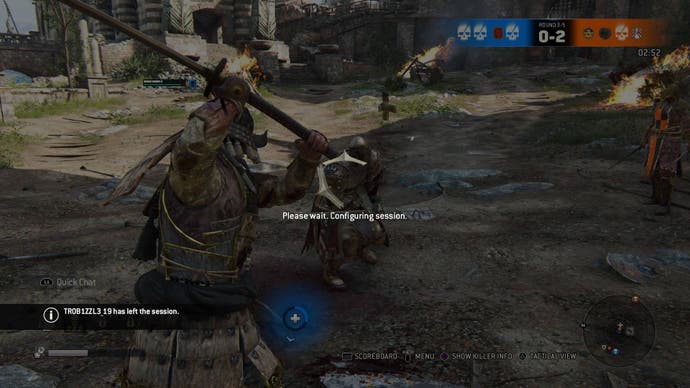
I'd like to move on to the Faction War, which just completed its first session with a surprise victory for the Vikings. Do you plan any changes to the way it works now it's out in the wild?
Roman Campos Oriola: Yes, we want to improve it. We think there are elements that are working, but also things we think should be better. Our goal with For Honor was, we push it live, and now we want to continue over the coming months and year to improve the game and make it live with the community input. That was one of the big goals of the Faction War. Is there a way to get the community more involved into their faction and into random matchmaking, because it's your interface for your matchmaking? I think Faction War serves well that purpose and it actually works.
But yes, in the long term there are a lot of things we can improve. There is no communication. There is no leader. There is no leaderboard. There's a lack of high level strategy. There's a lack of reward. There are many things we're looking at improving in the Faction War. But I'm really happy personally with how that mechanic has translated so far in the community.
Also, in order to be able to test it and get feedback on it, we need a shitload of players, and that was not possible before the closed beta and the open beta. We knew there would be more work post launch on the Faction War and other systems, because prior to launch we had much less pertinent feedback on how it works.
I know I'm running out of time, but quickly, should For Honor players play honourably?
Roman Campos Oriola: What is honour is written by the winner, not the loser. It's up to you how you want to be remembered!
It's an interesting debate. It's funny. The way we built the 2v2 it was really 2v2 in the sense like, even if you start like a Duel we wanted to give a bit of that strategy to the player. But for us the way we built it was, we want the players to be able to fight as a two person team. So, do you spawn and directly go gank one person then kill the other person? Do you do your duel? Do you try to slowly regroup as two people?
At the beginning people were really playing to duel, and then if you managed to kill your guy you would go and watch the other guy do his duel and not interrupt, because there is that call of honour. That struck us.
If you look at the bots, the bots actually gank you without any honour.
Yeah, the bots are bastards.
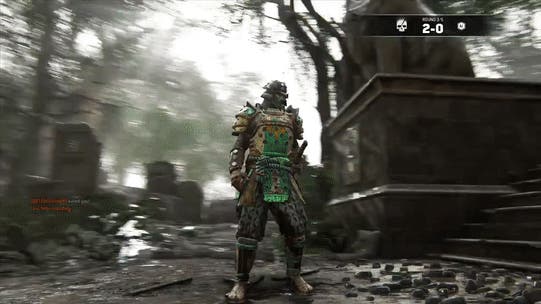
Roman Campos Oriola: That's actually something we're looking at - to give them a parameter for honour somewhere in the future.
But for me it's up to the player and their mood in the moment. It's a bit like environmental hazards. Is it honourable to throw someone off a cliff?
Roman Campos Oriola: I don't know if it's honourable or not, but if it allows you to win, yeah!
When I do it to someone it's fine, but when someone does it to me, it's not fine.
Roman Campos Oriola: Exactly. But seriously, those elements are in the game for a reason: it's because we think they are fun. In terms of design, the way we thought about environmental design was it was a little bit like headshots in shooters. How can you quickly shortcut with a skill move the fight? Or a grenade. That's the concept of it.
Do we have maps where there are a little bit too many of those, or it's a bit too easy to use them? Maybe. That's something we're currently watching through telemetry on our maps, and on which we might act depending on what we find. Also that's why we nerfed a little bit the spring attacks to have it less in Duel - like, I will sprint attack and throw you from the cliff if I'm the Raider or the Warlord. You need to sprint for a second before triggering your sprint move.
But for me, those ingredients are on the battlefield for a reason, and it's up to you to use them or not.
